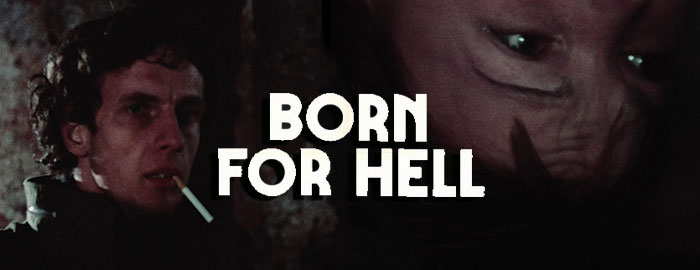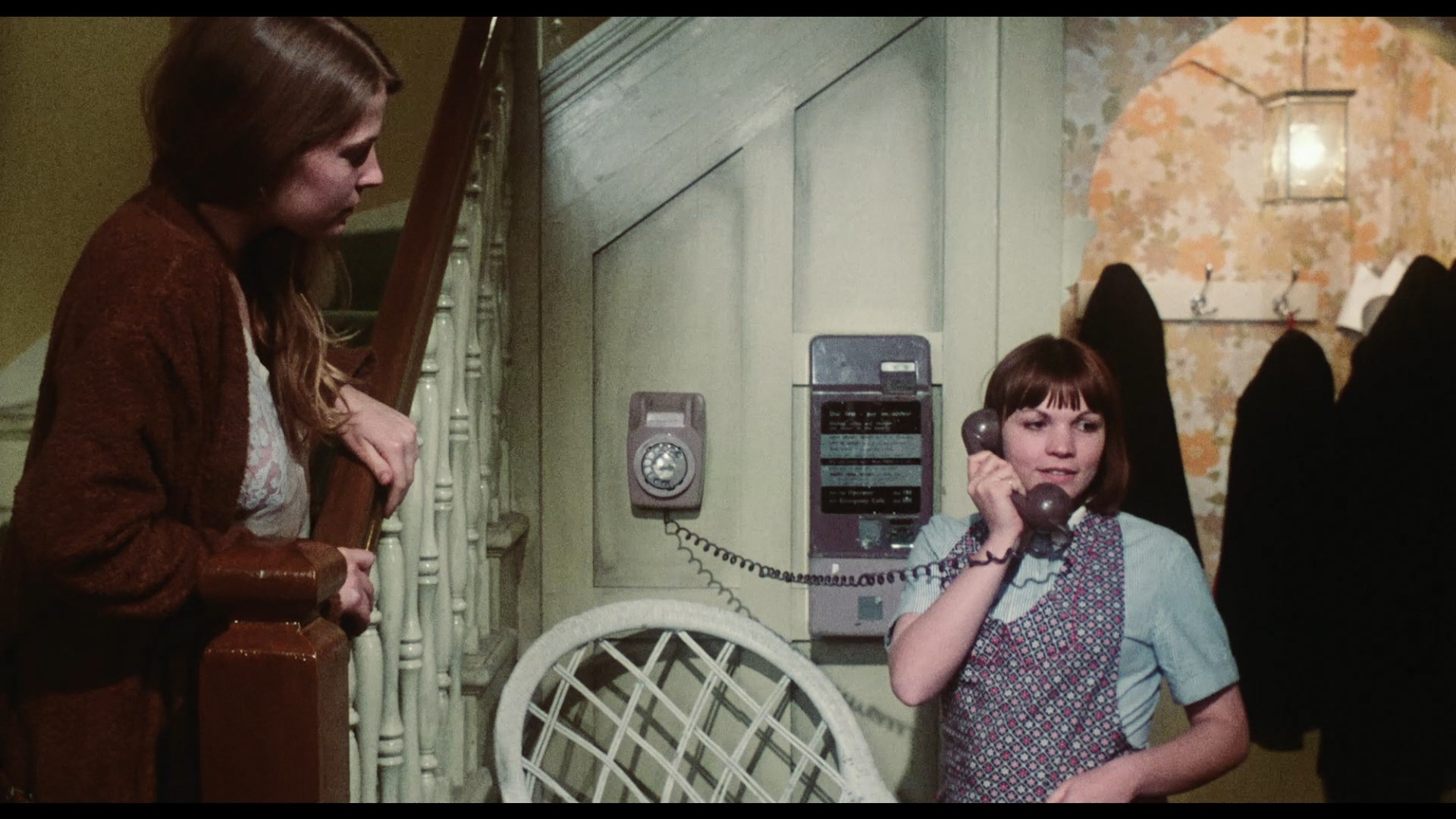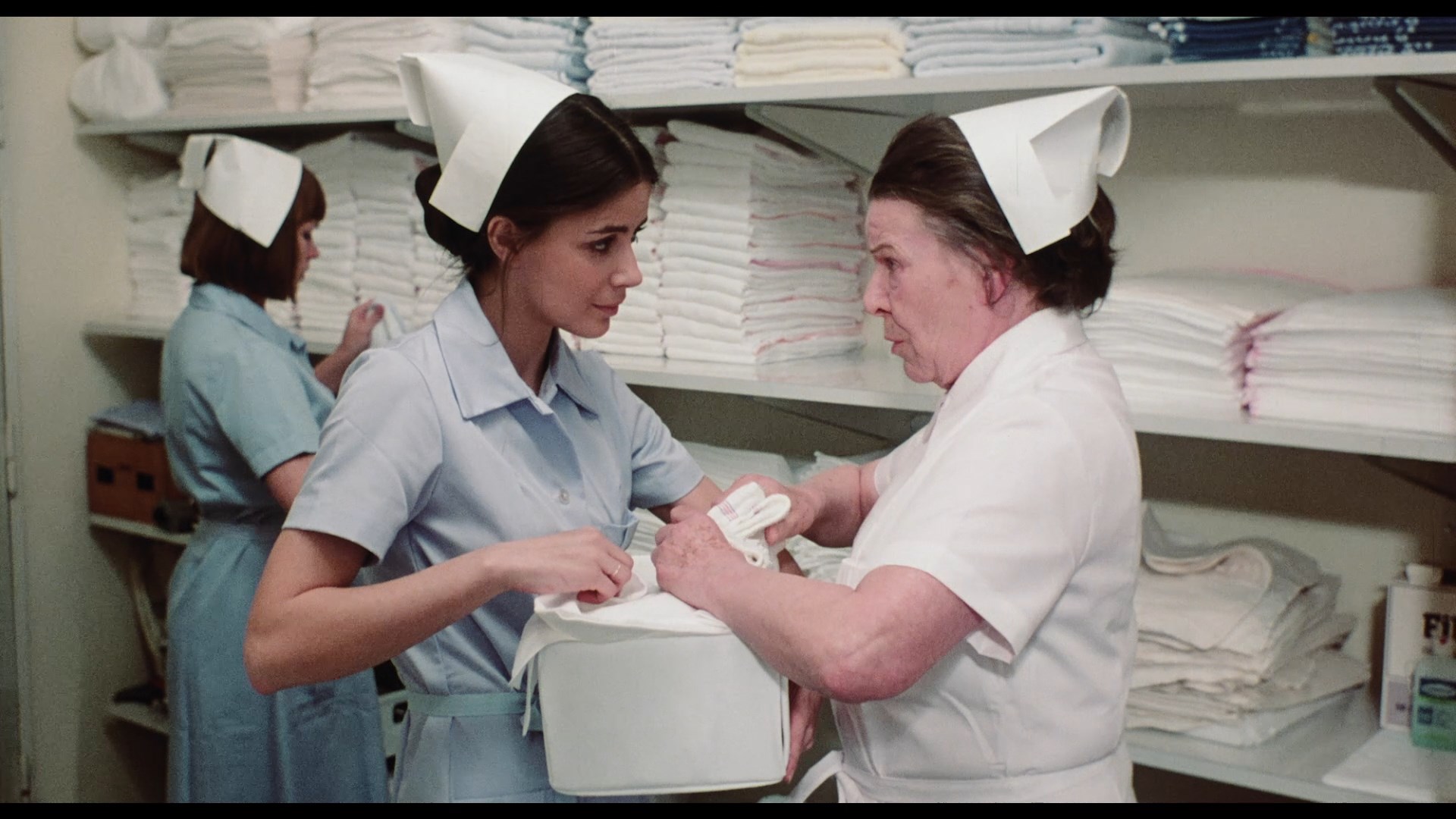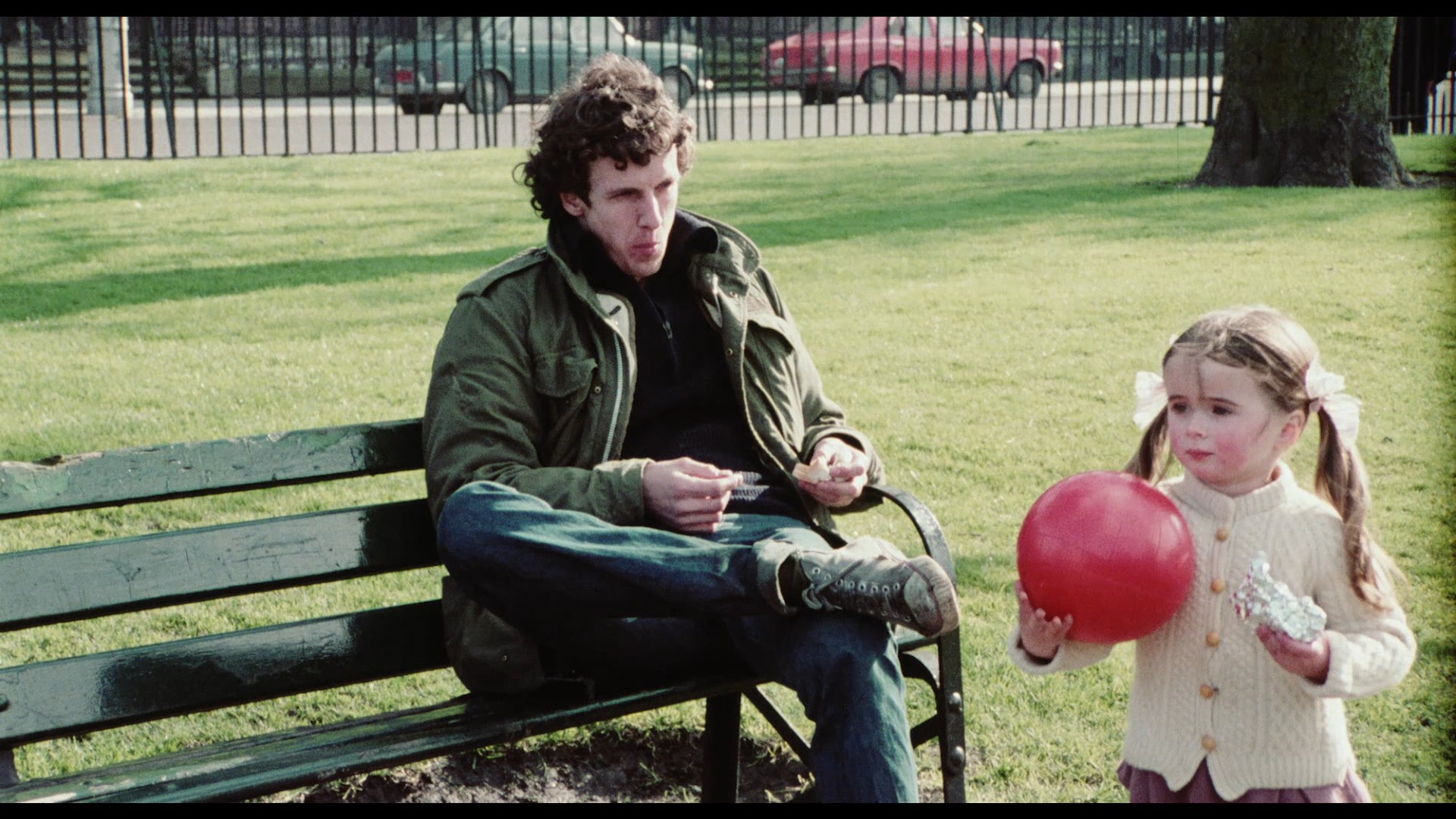

Color, 1976, 91 mins. 37 secs. / 85 mins. 43 secs.
Directed by Denis Héroux
Starring Mathieu Carrière, Debra Berger, Leonora Fani, Christine Boisson, Ely Galleani, Carole Laure
Severin Films (Blu-ray & DVD) (US R0 HD) / WS (1.85:1) (16:9)
 Richard Speck is still one of the most infamous due to the brutal murders of eight student nurses in
Richard Speck is still one of the most infamous due to the brutal murders of eight student nurses in  Chicago in 1966. The crime and Speck's subsequent trial were major news items long afterwards and quickly inspired the Kōji Wakamatsu film Violated Angels in 1967, as well as the grisly finale of the 1983 Cannon Charles Bronson vehicle, 10 to Midnight. Stuck in between them is another film loosely adapted from the Speck killings, Born for Hell, a Canadian tax shelter production that used financing from France, West Germany, and Italy to assemble a truly jaw-dropping cast of international actors for what would have normally been a quickie exploitation film with minor artsy aspirations. The film barely hit theaters in 1976 with its U.S. release getting reworked as Naked Massacre, mostly on the trash cinema circuit, before getting its widest distribution as a U.S. VHS release in 1984 from Vidcrest. That VHS edition became the source for many bootleg releases on DVD over the years, but finally the original cut (and its VHS variant) have been brought back officially from Severin Films in 2021 on Blu-ray and DVD.
Chicago in 1966. The crime and Speck's subsequent trial were major news items long afterwards and quickly inspired the Kōji Wakamatsu film Violated Angels in 1967, as well as the grisly finale of the 1983 Cannon Charles Bronson vehicle, 10 to Midnight. Stuck in between them is another film loosely adapted from the Speck killings, Born for Hell, a Canadian tax shelter production that used financing from France, West Germany, and Italy to assemble a truly jaw-dropping cast of international actors for what would have normally been a quickie exploitation film with minor artsy aspirations. The film barely hit theaters in 1976 with its U.S. release getting reworked as Naked Massacre, mostly on the trash cinema circuit, before getting its widest distribution as a U.S. VHS release in 1984 from Vidcrest. That VHS edition became the source for many bootleg releases on DVD over the years, but finally the original cut (and its VHS variant) have been brought back officially from Severin Films in 2021 on Blu-ray and DVD.  Eva Mattes, and Leonora Fani (Giallo in Venice). Soon he's using his switchblade to threaten the women and hold them
Eva Mattes, and Leonora Fani (Giallo in Venice). Soon he's using his switchblade to threaten the women and hold them  hostage, unleashing a wave of violence that take the city by storm.
hostage, unleashing a wave of violence that take the city by storm. included
included  (both are DTS-HD MA 2.0 mono) in case you feel like comparing, as it sounds more elegantly performed even if it doesn't come close to matching anyone's lip movements. Optional English SDH subtitles are also provided. In "The Other Side of the Mirror" (14m14s), Carrière chats via video conferencing with Kier-la Janisse about his appearance in Malpertuis and the challenges of acting opposite a tipsy Orson Welles, the mandated changes made to Born to Hell involving its location and the victims, the military jacket he stills owns, the advice from his father that prompted him to take the role, the vague "sexual encounters" he had with the crew, and the issue of directorial authorship that he (surprisingly) attributes more to Hungarian filmmaker Géza von Radványi. In "Nightmare in Chicago" (12m52s), local filmmakers John McNaughton (Henry: Portrait of a Serial Killer) and Gary Sherman (Dead & Buried) recall via Zoom their own memories of the Speck murders and the areas of Chicago they frequented that were impacted by the shocking crimes, as well as some other tangential peculiar anecdotes from the era. Then podcaster Esther Ludlow extrapolates on Speck in "A New Kind of Crime" (38m20s), a detailed analysis of the murderer's troubled background, his unique place in the annals of serial killers, and the details of that fateful night. The fascinating video essay "Bombing Here, Shooting There" (17m2s) hones in on the Dublin aspect of the film, noting several uncredited Irish actors, examining the backdrop of the "troubles" going on at the time in real life, the key geographic areas depicted in the film, and the historical value of the coverage and sometimes improvised touches captured by the filmmakers. Finally artist Joe Coleman gives an untitled discussion of Speck (14m21s) about the impact of the killings including the iconic tattoo on the killer's arm (which inspired the title of this film as well as a key clue) and the importance of this "living monster" on Coleman's psyche. Coleman also presents "Inside the Odditorium" (9m41s), a closer tour of his work inspired by true crime events with numerous Speck elements incorporated throughout. Finally the disc rounds out with the Italian trailer and, in a nice touch, the full 85-minute Naked Massacre cut, here in identical quality to the main version but featuring the alternate title sequence pulled from film. The differences here are obvious from the outset as this cut drops the establishing info about Belfast and makes some trims to cut to the chase quite a bit faster, with the house siege now coming significantly earlier in the running time.
(both are DTS-HD MA 2.0 mono) in case you feel like comparing, as it sounds more elegantly performed even if it doesn't come close to matching anyone's lip movements. Optional English SDH subtitles are also provided. In "The Other Side of the Mirror" (14m14s), Carrière chats via video conferencing with Kier-la Janisse about his appearance in Malpertuis and the challenges of acting opposite a tipsy Orson Welles, the mandated changes made to Born to Hell involving its location and the victims, the military jacket he stills owns, the advice from his father that prompted him to take the role, the vague "sexual encounters" he had with the crew, and the issue of directorial authorship that he (surprisingly) attributes more to Hungarian filmmaker Géza von Radványi. In "Nightmare in Chicago" (12m52s), local filmmakers John McNaughton (Henry: Portrait of a Serial Killer) and Gary Sherman (Dead & Buried) recall via Zoom their own memories of the Speck murders and the areas of Chicago they frequented that were impacted by the shocking crimes, as well as some other tangential peculiar anecdotes from the era. Then podcaster Esther Ludlow extrapolates on Speck in "A New Kind of Crime" (38m20s), a detailed analysis of the murderer's troubled background, his unique place in the annals of serial killers, and the details of that fateful night. The fascinating video essay "Bombing Here, Shooting There" (17m2s) hones in on the Dublin aspect of the film, noting several uncredited Irish actors, examining the backdrop of the "troubles" going on at the time in real life, the key geographic areas depicted in the film, and the historical value of the coverage and sometimes improvised touches captured by the filmmakers. Finally artist Joe Coleman gives an untitled discussion of Speck (14m21s) about the impact of the killings including the iconic tattoo on the killer's arm (which inspired the title of this film as well as a key clue) and the importance of this "living monster" on Coleman's psyche. Coleman also presents "Inside the Odditorium" (9m41s), a closer tour of his work inspired by true crime events with numerous Speck elements incorporated throughout. Finally the disc rounds out with the Italian trailer and, in a nice touch, the full 85-minute Naked Massacre cut, here in identical quality to the main version but featuring the alternate title sequence pulled from film. The differences here are obvious from the outset as this cut drops the establishing info about Belfast and makes some trims to cut to the chase quite a bit faster, with the house siege now coming significantly earlier in the running time. ![]()